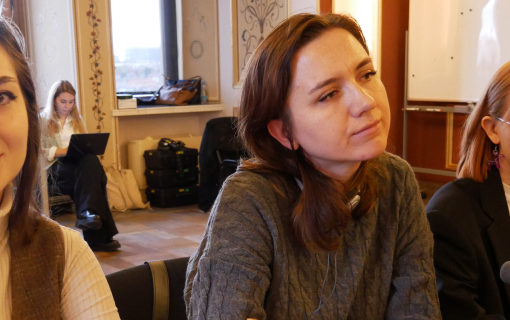Myanmar’s Election Commission Takes Steps to Achieve Gender Equality and Include Voters with Disabilities
After five decades of military rule, Myanmar has initiated an ongoing process of democratic reform, opening new and significant political space. However, persons with disabilities in Myanmar still face numerous obstacles in accessing their right to vote, and, at only 6.8 percent, Myanmar has one of the lowest percentages of women in parliament in the region. The effectiveness of the reform process and credibility of the 2015 elections will be enhanced by the political inclusion of all segments of Myanmar’s diverse population.
IFES has been working with the Union Election Commission (UEC) and civil society groups to improve participation and access.
Ahead of the country’s historic 2012 by-elections, IFES conducted a face-to-face voter education campaign. Volunteers canvassed marketplaces, speaking to women and vendors about the voting process and how to mark a ballot. IFES distributed customized brochures, which targeted women and included images of women with disabilities. Additionally, IFES and the Myanmar Independent Living Initiative (MILI) implemented voter education activities that included a radio spot and training on the electoral rights of persons with disabilities.
In September 2013 – for the first time – the UEC hosted representatives from civil society organizations (CSOs) for an IFES-led gender and elections module of the Building Resources in Democracy, Governance and Elections (BRIDGE) program. Participants identified priority areas throughout the entire electoral cycle, such as voter registration, voter education and gender sensitive Election Day procedures for strengthening inclusion of women in the electoral process. It enabled the UEC to work with civil society toward solutions, resulting in concrete plans to include gender sensitive concerns in the UEC’s strategic plan.
Similarly, in October 2013 the UEC spent two days meeting representatives of disabled persons’ organizations (DPOs) – including women DPO leaders. The UEC’s draft strategic plan was reviewed and access measures were incorporated to strengthen the inclusiveness of the electoral process. During this workshop, IFES conducted a simulation where DPO representatives were poll workers and UEC representatives were voters with disabilities. Instantly, the UEC Commissioners became aware of access issues with the 2012 polling station design and committed to addressing those issues before the next election. The UEC then held broad consultations on the draft strategic plan inviting women’s groups, DPOs, CSOs and registered political parties to provide feedback. The full strategic plan now includes one pillar dedicated to inclusion as well as a cross-cutting focus on access in all 12 pillars for women, people with disabilities and ethnic minorities.
To ensure the integration of the rights of persons with disabilities into Myanmar’s legal framework, IFES and MILI facilitated a workshop with DPO representatives to review regulations and laws governing elections and polling. This review took into account international treaties, including the U.N. Convention on the Rights of Persons with Disabilities (CRPD) ratified by Myanmar in 2011. Potential changes to the legal framework to improve access for persons with disabilities were identified. Based on the feedback from DPOs, the UEC drafted new regulations, such as allowing a voter to choose an assistant rather than relying on a family member, and adopted a new polling station layout to increase access.
By empowering women and persons with disabilities to increase their participation in political processes, Myanmar is moving toward a richer and more dynamic democratic society. IFES underscores the importance of equal participation in the electoral process and is proud to work with the UEC and Myanmar’s civil society to empower all citizens to fully take part in their political process.









